Vegans, people who avoid exploiting animals, are often accused of putting the needs of animals before the needs of humans. This couldn’t be further from the truth. For example:
Chicks don’t debeak themselves.
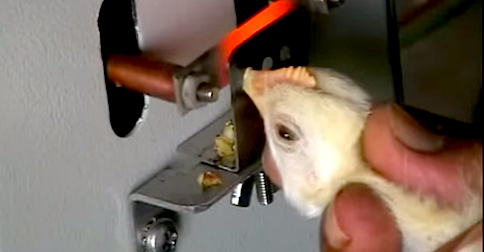
Cows don’t artificially impregnate themselves.
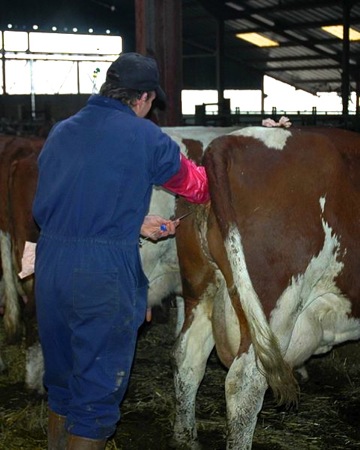
Piglets don’t castrate themselves.
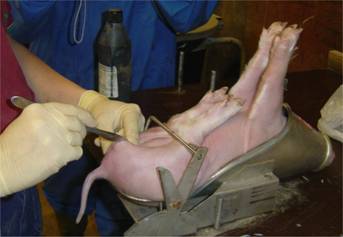
Male chicks (of the egg laying variety) don’t grind themselves up alive.
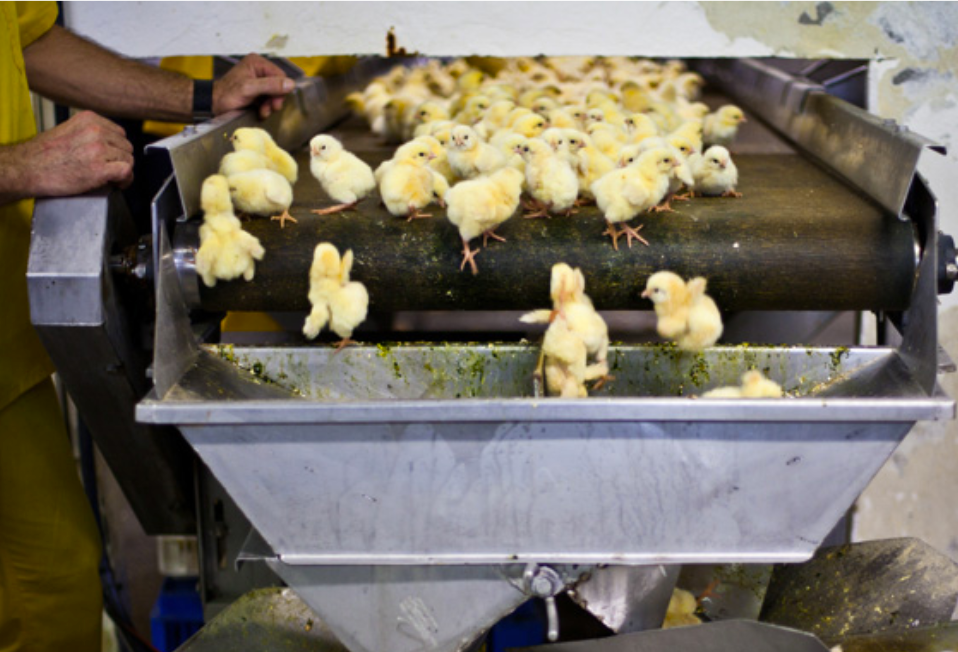
Bulls don’t dehorn themselves.
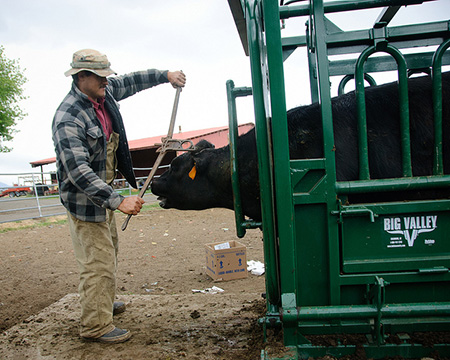
Piglets don’t dock their own tails.
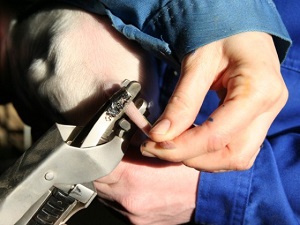
Chickens don’t cram themselves into tiny cages for an 18-month confined life.
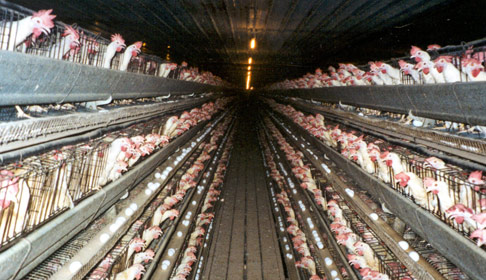
Cows don’t send away their calves shortly after birth and put them in veal crates.

Pigs don’t lock themselves behind bars.

Chickens don’t dismember themselves.
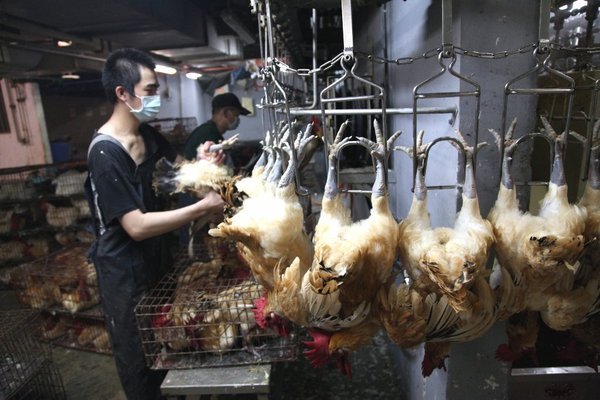
Cows don’t stun themselves with a bolt pistol to the brain.
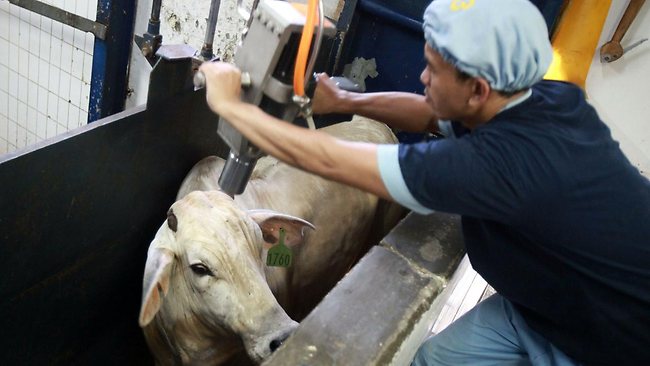
Pigs don’t slit their own throats to bleed out while their hearts beat.
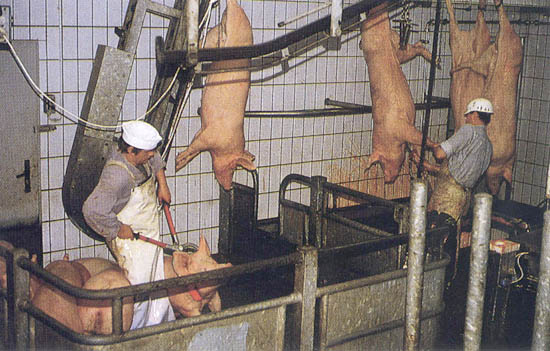
Of course not. These factory farm and slaughterhouse jobs belong to humans. When you don’t eat the animal products from these places, you don’t support humans performing these inhumane jobs. The exploitation of animals involves the exploitation of humans. Vegans care about them all.
Slaughterhouse employees are not only exposed to a battery of physical dangers on the cut floor, but the psychological weight of their work erodes their well being. As one former abattoir employee attests in the book Slaughterhouse: The Shocking Story of Greed, Neglect, and Inhumane Treatment Inside the U.S. Meat Industry:
“The worst thing, worse than the physical danger, is the emotional toll. If you work in the stick pit [where hogs are killed] for any period of time—that let’s [sic] you kill things but doesn’t let you care. You may look a hog in the eye that’s walking around in the blood pit with you and think, ‘God, that really isn’t a bad looking animal.’ You may want to pet it. Pigs down on the kill floor have come up to nuzzle me like a puppy. Two minutes later I had to kill them. … I can’t care.”
It will come as no surprise that the consequences of such emotional dissonance include domestic violence, social withdrawal, drug and alcohol abuse, and severe anxiety. As slaughterhouse workers are increasingly being treated for PTSD (post-traumatic stress disorder), researchers are finally starting to systematically explore the results of killing sentient animals for a living.
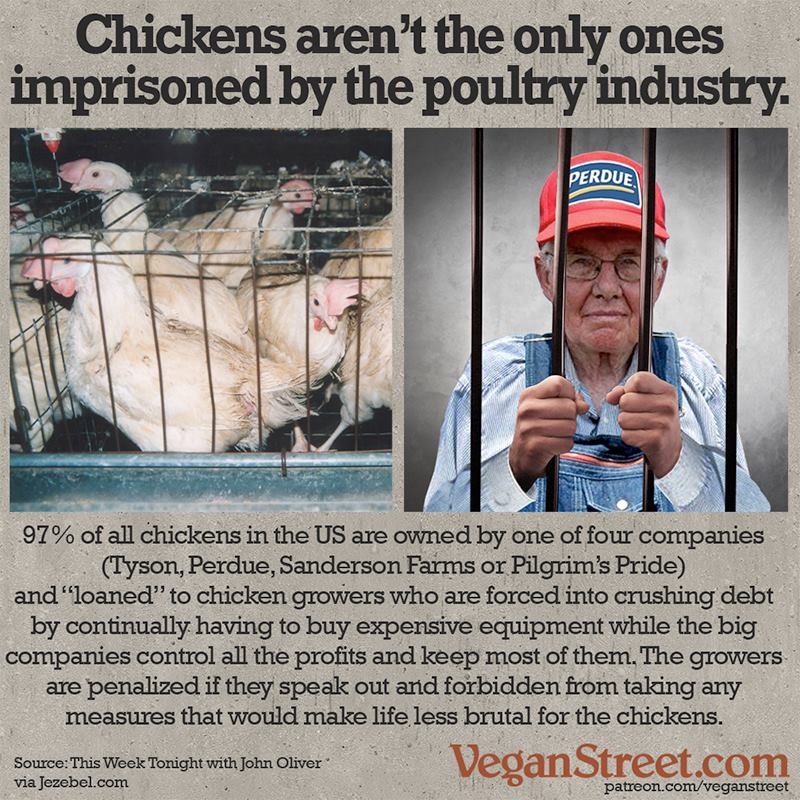
Amy Fitzgerald, a criminology professor at the University of Windsor in Canada, has found a strong correlation between the presence of a large slaughterhouse and high crime rates in U.S. communities. One might object that a slaughterhouse town’s disproportionate population of poor, working-class males might be the real cause, but Fitzgerald controlled for that possibility by comparing her data to counties with comparable populations employed in factory-like operations. In her study released in 2007, the abattoir (slaughterhouse) stood out as the factor most likely to spike crime statistics. Slaughterhouse workers, in essence, were “desensitized,” and their behavior outside of work reflected it. (source)
Fitzgerald’s study found that violent crimes including sexual assault and rape increase in towns once an abattoir moves in. She compared statistics from 581 US counties to prove the link, and says laborers become desensitized to violence. Fitzgerald said it wasn’t the nature of repetitive and dangerous work, but the act of slaughtering an animal that was to blame for the increase in violence. (source)
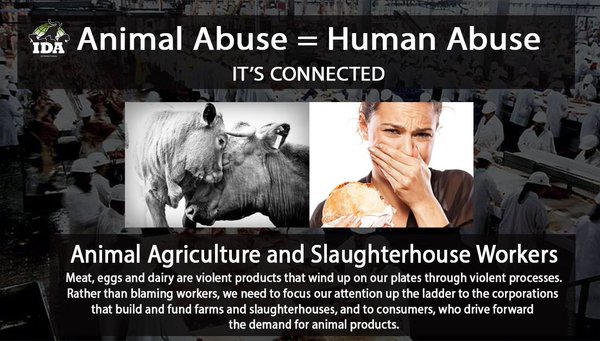
Like other divisions of agriculture, slaughterhouse and “meat”-processing workers are predominantly people of color living in low-income communities. Historically, a significant percentage of the workforce has been African American. In recent decades, an influx of Latin American workers has been seen across the country, partially due to active recruiting by the corporations. Today, approximately 38% of slaughterhouse and “meat”-processing workers were born outside of the U.S.
An unknown percentage of workers are undocumented. Many employers knowingly hire undocumented workers in an effort to satisfy the extremely high turnover rate of the industry, which often exceeds 100% annually. In some cases, they provide incentives for current workers to recruit family and friends and even help new workers to create fake social security cards. Undocumented workers are constantly faced with the threat of deportation – either by their employer or by federal raids. (source)
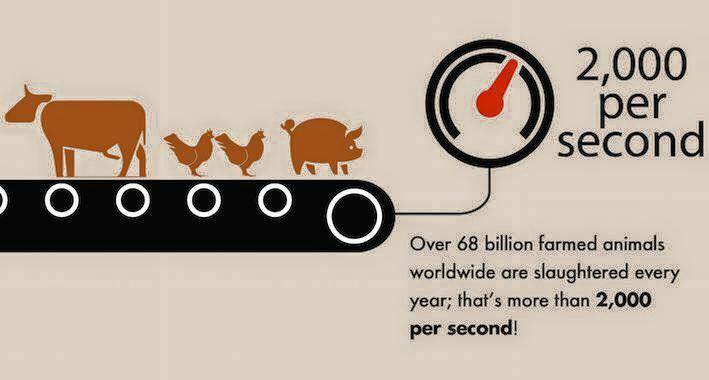
Any way you look at this, it is awful work. Is it better than being unemployed? Perhaps, but barely. This isn’t to say that growing plants for consumption isn’t free from industry abuses of humans. Slave labor for tomato or orange picking or the gathering of cocoa beans by children are well documented cases.
We can all reduce the amount of abuse and suffering by choosing plant foods and choosing organic and/or fair-trade plant foods when available and affordable.
The mission of veganism is to liberate all animals, including humans.
Additional Resources
• 57 Health Benefits of a Plant-Based Diet
• Johns Hopkins on Health & Environmental Implications of Animal Consumption
• Toward Veganism: Go Paleo, Not Vegetarian First
• Getting Started on a Low Fat, Whole Food, Plant-Based Diet

{ 0 comments… add one now }